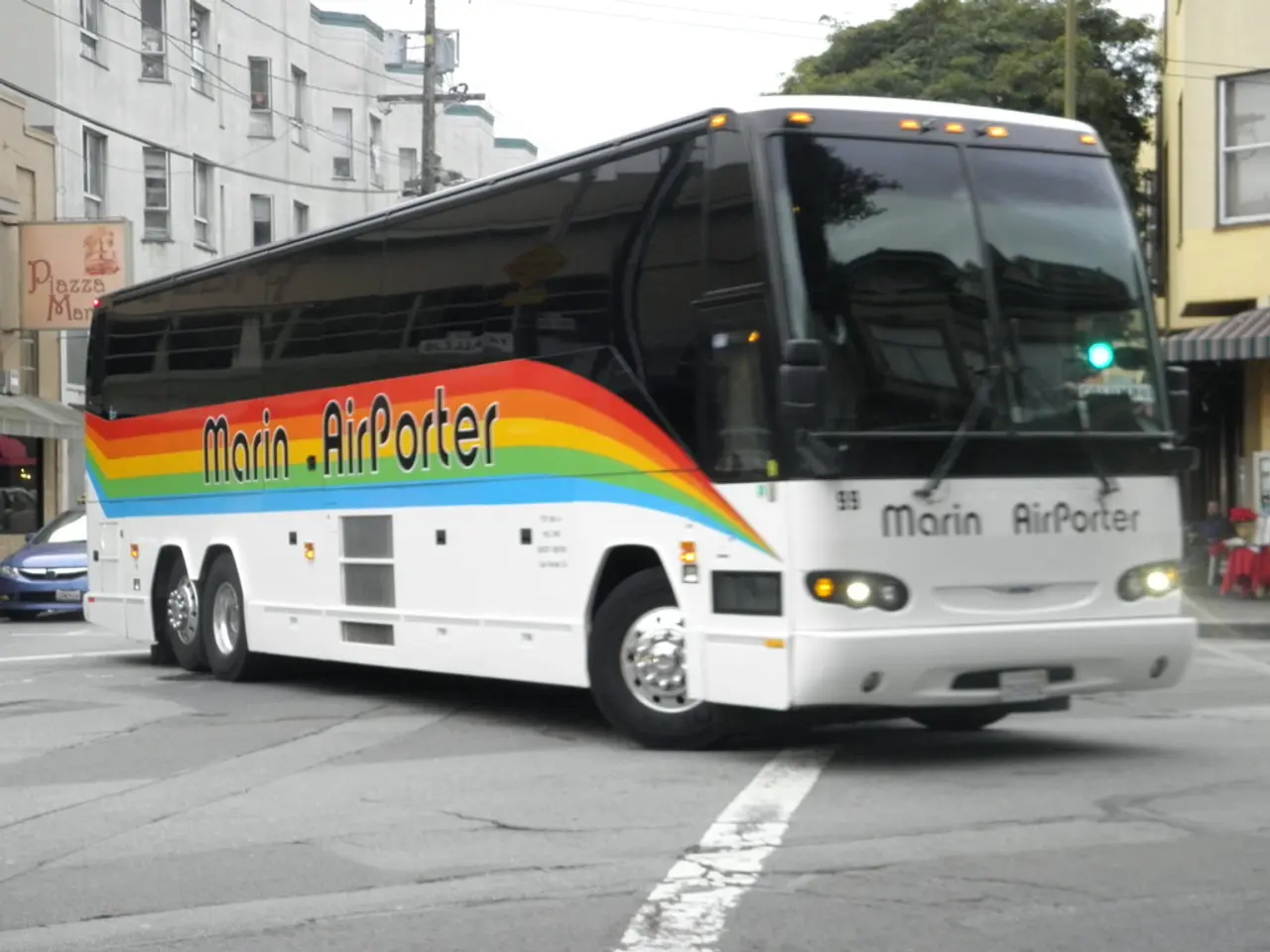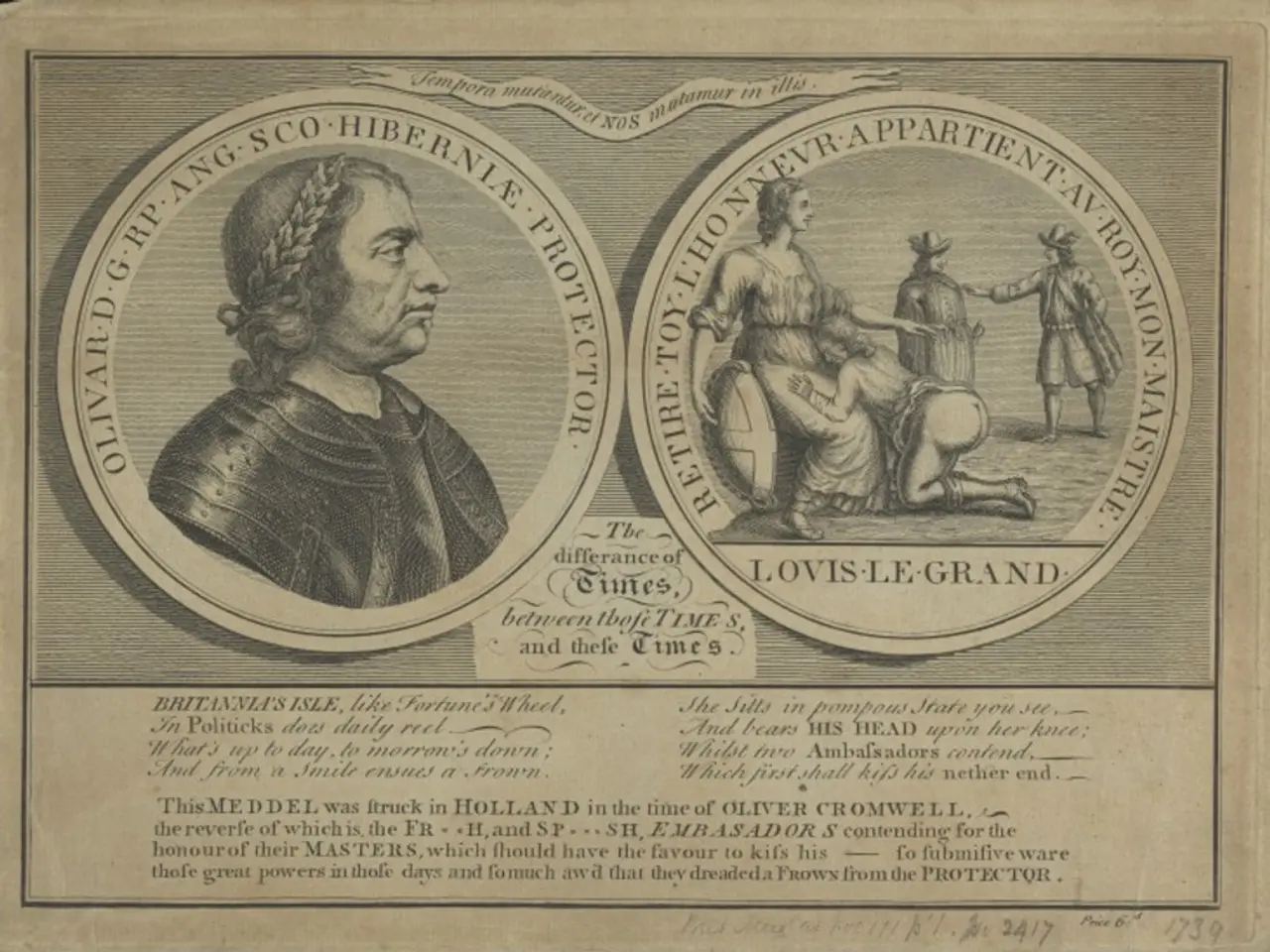Advancements and Enhancements in Bus Transportation Technology within the Saudi Arabian Public Transit System
Saudi Arabia is leading the charge in embracing clean energy solutions and intelligent transportation systems (ITS) in its public transport sector, as part of its Vision 2030 goals. This forward-thinking approach aims to create smart, sustainable, and autonomous mobility solutions.
Current State
The Kingdom has already made significant strides in this area. Pilot programs for autonomous mobility, including Robotaxi services in Riyadh, operated by WeRide in partnership with Uber and local firms, are now in operation. These services, which operate key airport-city routes, mark Saudi Arabia's first autonomous driving permits and initial integration of AI-driven transport solutions into public transit.
Saudi Arabia's vast public transport user base (104 million) and intercity bus passengers (349 million) annually demand innovative mobility options. Ride-hailing and delivery service usage have risen sharply, highlighting an evolving transport ecosystem.
Electrification of public transport is progressing rapidly, with major cities like Riyadh, Jeddah, and Dammam actively replacing diesel buses with electric alternatives. Entities such as SAPTCO and the Royal Commission for Riyadh City are piloting and scaling electric buses, backed by public tenders and international partnerships.
The electric bus market is driven by sustainability and intelligent mobility, targeting 30% electric vehicle penetration in Riyadh by 2030. Efforts include AI-based route optimization, predictive maintenance, and driver-assistance systems to improve operational efficiency and passenger experiences.
Localization and workforce development in electric bus manufacturing are emphasized to align with economic diversification and employment under Vision 2030. Infrastructure expansion in urban areas supports efficient charging and fleet management.
Autonomous Vehicle Market Growth
The autonomous vehicle (AV) market is also growing robustly, with projections showing expansion from $1.03 billion in 2024 to $2.70 billion by 2030 at a CAGR of 17.47%. AVs are integrated into smart city frameworks such as NEOM, The Line, and the Red Sea Project, planned as "AI-first" environments embedding autonomous mobility deeply into urban design.
Autonomous public transport shuttles and pods are being piloted in high-density zones to reduce congestion and emissions while improving connectivity, particularly in futuristic smart city developments.
Future Plans
Saudi Arabia is targeting 25% autonomous goods transport vehicles by 2030, indicating broad autonomous transport ambitions beyond passenger services. The government aims for 30% of vehicles in Riyadh to be electric by 2030, extending electric bus adoption as part of the wider electrification of transport.
Continued expansion of smart city projects will integrate AI, IoT, and big data analytics into transport systems, facilitating real-time traffic management, energy efficiency, and passenger safety. Investments will focus on scaling autonomous public transport solutions citywide, making use of AI-driven technologies for route planning, vehicle maintenance, and operational safety, while also fostering local manufacturing and workforce training.
Saudi Arabia’s transport strategy is aligned with its Vision 2030 urbanization and sustainability goals, aiming to establish a smart, efficient, and environmentally friendly bus network powered by electric and autonomous technologies.
In conclusion, Saudi Arabia is transforming its bus network through a concerted push combining electric bus electrification, AI and autonomous vehicle integration, and smart city infrastructure development. This strategic approach positions Saudi Arabia as a regional leader in intelligent, sustainable urban transport by 2030. The incorporation of ITS into Saudi Arabia's infrastructure is part of a smart mobility strategy, prioritizing connection, dependability, and user convenience. The future of mobility in Saudi Arabia combines sustainability and technology, leading to efficient, environmentally responsible public transportation.
- In addition to its efforts in autonomous mobility solutions, Saudi Arabia is also prioritizing the electrification of its public transportation system, with a goal of 30% electric vehicle penetration in Riyadh by 2030.
- Recognizing the potential of technology in the transport sector, Saudi Arabia plans to integrate AI, IoT, and big data analytics into its transport systems, aiming to increase operational efficiency and passenger safety.
- Beyond passenger services, Saudi Arabia aims for 25% of goods transport vehicles to be autonomous by 2030, demonstrating a broad vision for the role of automation in the transport industry.




